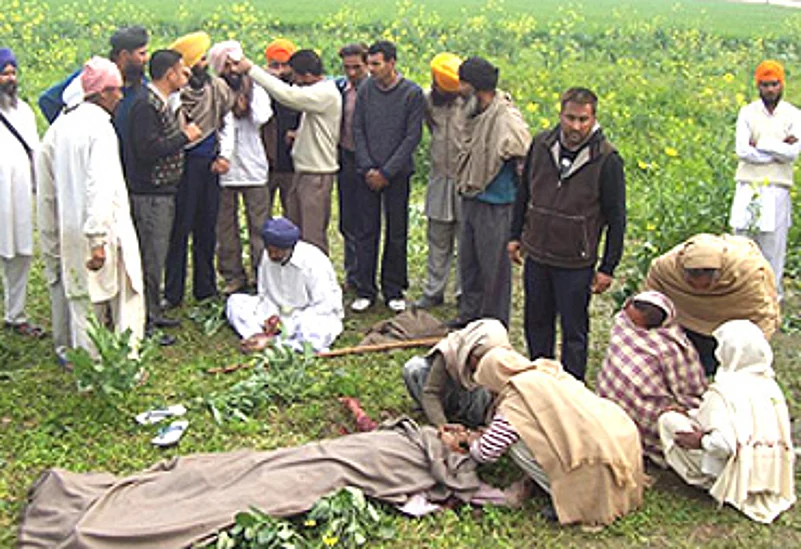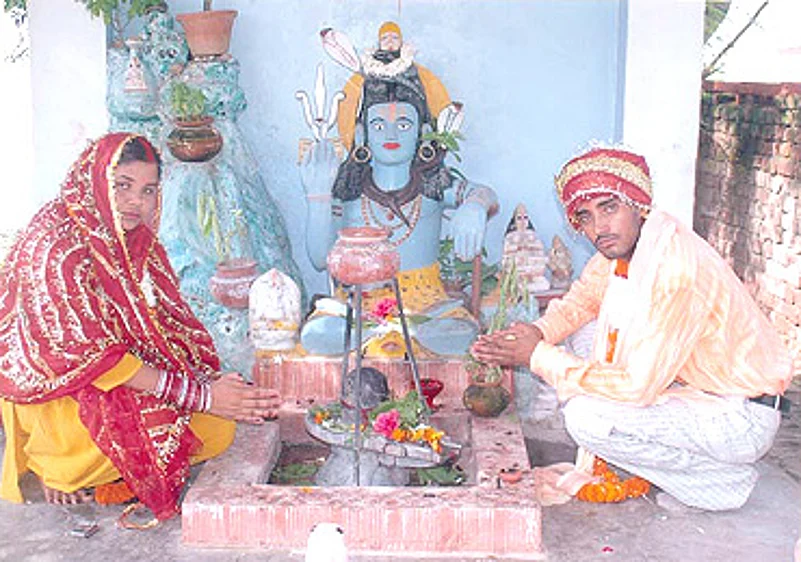
As the conservative, feudal, patriarchal society of this region goes through social change and upheaval, cases of "honour killings" of children who have married against their parents' wishes are mounting. No wonder, then, that the courts are swamped by young couples seeking protection against parents who have turned into bloodthirsty enemies overnight while the police just look the other way.
So acute is the problem that in June 2008 the high court constituted a committee of representatives from Punjab, Haryana and the Union Territory of Chandigarh to suggest how this problem could be tackled. Giving an idea of the extent of the problem, Justice Kanwaljeet Singh Ahluwalia noted, "Out of 26 matters listed before me on June 23, 10 pertained to marriage between young persons aged more than 18 to 21 yrs of age. Within four days the number of these cases has swelled to 27." This was the situation with just one bench.
The overriding compulsion which brings such couples to the high court is the fear of parents or relatives who are enraged that the young have defied the accepted social norms of their community. "Honour killings" to deal with errant sons and daughters have become so rampant in Punjab, Haryana and western Uttar Pradesh that these days no one from the community, neighbourhood or village even protests anymore. On Diwali night last year, two girls of Kaluwas village in Bhiwani district of Haryana were savagely beaten by their relatives and then burnt alive. They had returned late after an evening out with some boys. The entire village conspired in a sullen silence over the gruesome murder. A few days earlier, a Noida youth shot dead two of his cousins who had eloped with their lovers. Cases like these, however brutal, scarcely create a ripple in rural or semi-urban communities in these states.
A typical case would go like this. A young couple, generally of different castes or social status, runs away from home to get married. They first go to what have come to be called 'marriage shops', where they obtain a certificate stating that they are wedded to each other, and then approach the high court for protection from their parents. They have taken the precaution of sending a request for protection to the district police by post, but few dare to go to the police personally. This, as lawyer Aman Sibia points out, is "because the police would have already received a complaint from the parents that their daughter has been kidnapped. " Parents of runaway girls also often approach high court lawyers to check whether their daughter has filed a case for protection. Once they come to know the date on which she has to appear in court, they reach the premises with their musclemen.

Risky deal: A couple at a ‘marriage shop’
It doesn't matter at all to the perpetrators that the law is on the side of the couples, as long as they are not under-age. In 2006, a Supreme Court judgement reiterated this point when it directed "administration/police authorities throughout the country to see that if any boy or girl who is a major marries outside the caste or religion, the couple is not harassed or subjected to threats of violence". But as Rajeev Godara, an advocate on the committee, points out, the judicial and police set-up at the district level has completely failed to come to the aid of such couples.
The police, who often come from the same social milieu and culture as the parents, sympathise with them and are quick to register FIRs against the boy for kidnapping the girl. More often than not, the police—especially those in the lower ranks—turn into exploiters, demanding bribes and putting the fleeing couples under extreme pressure. In one case, after the high court ordered the district superintendent of police to provide protection to a couple, the work was assigned to a station house officer—who allegedly raped the girl he was to have protected. Anupam Gupta, senior standing counsel for Chandigarh, who is also on the high court committee, says, "It's a growing problem and radical measures are needed in the judicial domain to deal with it. The police has to be checked from registering false cases of kidnapping and rape against the groom at the instance of the girl's family. These are grave offences and quashing the FIRs against innocent young boys becomes difficult."
In 2007, the high court had significantly ruled that police should defer the arrest of the boy on complaint of family members till the girl's statement is recorded. It also directed that if a girl is a major she should not be forcibly taken away by police to be handed over to her parents against her will. But, say lawyers, at the district level, directions and legal niceties such as these are observed more in the breach.
ngos and civil society activists have cried themselves hoarse expressing their outrage at the growing incidence of honour killings and brutal intimidation of runaway couples, while the courts, alarmed by the growing deluge of couples seeking their protection, have turned to a committee to suggest remedies. But nothing will be achieved unless there is a political will to tackle the problem, and to hold the police or state accountable when they do not act on complaints for protection, or fail to prosecute and punish those guilty of "honour killings".


























